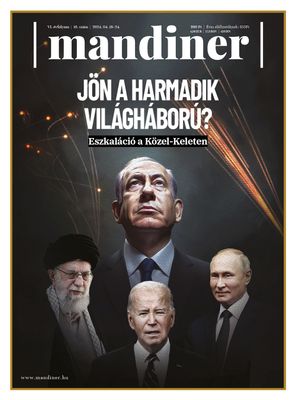Ft
Ft
- Címlap
- Hírek
- Vélemények
- Rovatok
- Hetilap
- Szerzőink
- Előfizetés
Ft
Ft
04. 19.
péntek
Akták
AKTA
Háború Ukrajnában AKTA
Választás 2024 AKTA
Háború Izraelben AKTA
Lengyel választás Előfizetés
04. 19.
péntek
Regionális hírportálok
Bács-Kiskun - baon.hu Baranya - bama.hu Békés - beol.hu Borsod-Abaúj-Zemplén - boon.hu Csongrád - delmagyar.hu Dunaújváros - duol.hu Fejér - feol.hu Győr-Moson-Sopron - kisalfold.hu Hajdú-Bihar - haon.hu Heves - heol.hu Jász-Nagykun-Szolnok - szoljon.hu Komárom-Esztergom - kemma.hu Nógrád - nool.hu Somogy - sonline.hu Szabolcs-Szatmár-Bereg - szon.hu Tolna - teol.hu Vas - vaol.hu Veszprém - veol.hu Zala - zaol.hu Közélet
mandiner.hu magyarnemzet.hu szabadfold.hu hirtv.hu origo.hu Gazdaság
vg.hu figyelo.hu agrokep.hu Magazin
astronet.hu automotor.hu lakaskultura.hu likebalaton.hu mindmegette.hu travelo.hu dietaesfitnesz.hu vitorlazasmagazin.hu videkize.hu tvmusor.hu hirvilag.hu Bulvár
borsonline.hu ripost.hu metropol.hu life.hu she.hu Szolgáltatás
ingatlanbazar.hu freemail.hu koponyeg.hu videa.hu reblog.hu lapcentrum.hu Rádió
gongradio.hu hirfm.hu 
